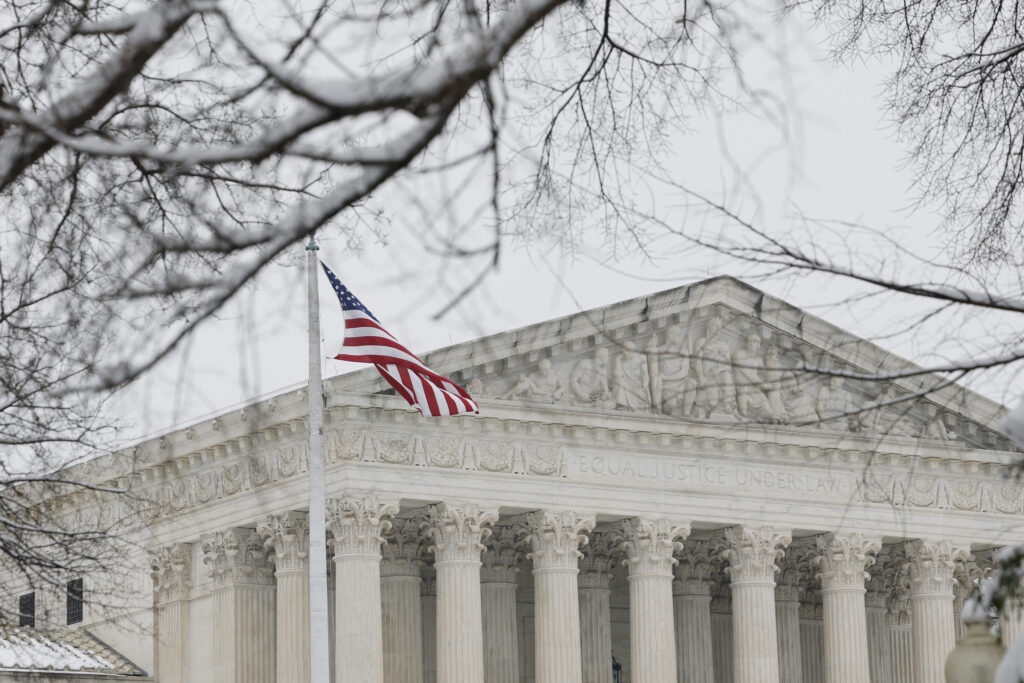The US Supreme Court on Thursday revived the lawsuit of a heterosexual Ohio woman who claims she was the victim of reverse discrimination because she was passed over twice for jobs for candidates who were gay.In a unanimous 9-0 decision, the top court ruled that members of a majority group cannot be held to a higher evidentiary standard than minorities in pursuing a discrimination claim.”The standard for proving disparate treatment… does not vary based on whether or not the plaintiff is a member of a majority group,” said Justice Ketanji Brown Jackson, who authored the opinion.The case comes at a time when President Donald Trump and a number of major corporations are rolling back diversity, equity and inclusion programs intended to combat systemic inequalities faced by minorities.It could potentially lead to a surge in the filing of “reverse discrimination” lawsuits around the country.Marlean Ames, an employee of the Ohio Department of Youth Services, had asked the court to revive a lawsuit she filed under the 1964 Civil Rights Act which bars discrimination on the basis of race, religion, sex or sexual orientation.Ames, a heterosexual white woman, was appealing lower court decisions that rejected her discrimination suit on the basis that members of majority groups must meet a higher bar for proving workplace bias than minorities.In its ruling, the US Sixth Circuit Court of Appeals said Ames had not established “background circumstances” showing that the Ohio state agency is “that unusual employer who discriminates against the majority.”The requirement that she present “background circumstances” is unconstitutional and being unfairly applied only to members of majority groups bringing job discrimination cases, Ames said.The six conservative and three liberal justices on the Supreme Court agreed, sending Ames’s case back down to lower courts for renewed consideration.America First Legal Foundation, a group founded by Stephen Miller, who is now the White House deputy chief of staff, filed a brief with the court in support of Ames.
The US Supreme Court on Thursday revived the lawsuit of a heterosexual Ohio woman who claims she was the victim of reverse discrimination because she was passed over twice for jobs for candidates who were gay.In a unanimous 9-0 decision, the top court ruled that members of a majority group cannot be held to a higher evidentiary standard than minorities in pursuing a discrimination claim.”The standard for proving disparate treatment… does not vary based on whether or not the plaintiff is a member of a majority group,” said Justice Ketanji Brown Jackson, who authored the opinion.The case comes at a time when President Donald Trump and a number of major corporations are rolling back diversity, equity and inclusion programs intended to combat systemic inequalities faced by minorities.It could potentially lead to a surge in the filing of “reverse discrimination” lawsuits around the country.Marlean Ames, an employee of the Ohio Department of Youth Services, had asked the court to revive a lawsuit she filed under the 1964 Civil Rights Act which bars discrimination on the basis of race, religion, sex or sexual orientation.Ames, a heterosexual white woman, was appealing lower court decisions that rejected her discrimination suit on the basis that members of majority groups must meet a higher bar for proving workplace bias than minorities.In its ruling, the US Sixth Circuit Court of Appeals said Ames had not established “background circumstances” showing that the Ohio state agency is “that unusual employer who discriminates against the majority.”The requirement that she present “background circumstances” is unconstitutional and being unfairly applied only to members of majority groups bringing job discrimination cases, Ames said.The six conservative and three liberal justices on the Supreme Court agreed, sending Ames’s case back down to lower courts for renewed consideration.America First Legal Foundation, a group founded by Stephen Miller, who is now the White House deputy chief of staff, filed a brief with the court in support of Ames.
